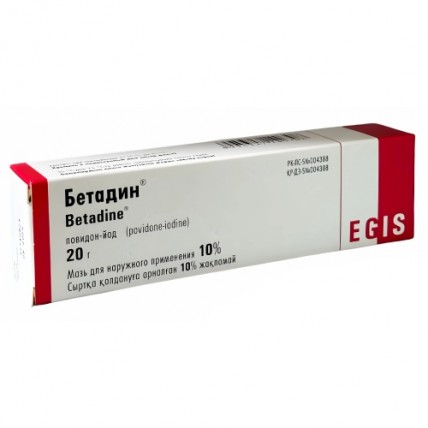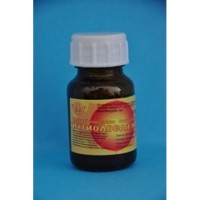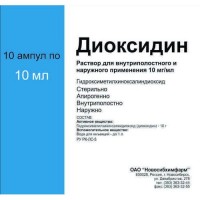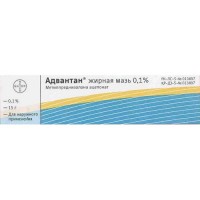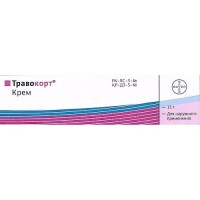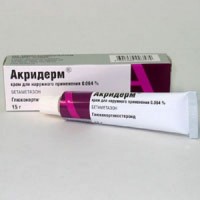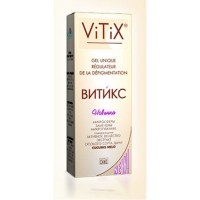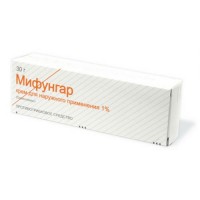Betadine® (Povidone-iodine) Ointment 10%, 20 g
- $16.00
What is Betadine® (Povidone-Iodine) Ointment?
Betadine® Ointment, containing 10% Povidone-Iodine, is an antiseptic cream used to prevent and treat infections in minor cuts, abrasions, and small burns. It is also effective for treating fungal and bacterial skin infections, as well as infections of pressure sores and trophic ulcers. This ointment works by releasing iodine, which helps in eliminating a wide range of pathogens, including bacteria, fungi, and viruses.
How Should You Use Betadine Ointment?
Betadine Ointment is intended for external use only. Apply the ointment gently to the affected area after cleaning and drying it. The recommended dosage is a pea-sized amount (for 1 cm² of skin) applied one or two times daily, usually not exceeding a period of 7 days. The application can be covered with a bandage if needed.
Special Dosage for Children and Adolescents
- Children (2-5 years): 1 dose (pea-sized amount) once daily.
- Children (6-8 years): 2 doses once daily or 1 dose twice daily.
- Children (9-13 years): 3 doses once daily or 1.5 doses twice daily.
- Adolescents (14-18 years): 5 doses once daily or 2.5 doses twice daily.
Betadine Ointment is not recommended for children below 2 years old, and it is contraindicated for infants under 1 year.
What Precautions Should Be Taken Before Using Betadine?
- Avoid Use if Allergic: Do not use Betadine if you are allergic to iodine or any of its components.
- Thyroid Conditions: Avoid use if you have thyroid issues, including thyroid nodules or thyroid carcinoma, especially before and after radioactive iodine procedures.
- Chemical Incompatibilities: Betadine should not be used alongside substances like hydrogen peroxide, silver compounds, mercury-containing drugs, or taurine, as these interactions can reduce its effectiveness.
- Jewelry Warning: Avoid contact with silver jewelry as iodine can cause discoloration.
Who Should Avoid Betadine Ointment?
Betadine is not suitable for:
- Patients with a hypersensitivity to iodine.
- Infants under one year.
- Individuals with herpetiform dermatitis or thyroid dysfunction.
- Patients undergoing or having recently undergone radioactive iodine treatment.
For pregnant or breastfeeding women, Betadine should only be used if the potential benefit outweighs the risks. Iodine can pass through the placenta and enter breast milk, potentially affecting the baby's thyroid function.
Are There Any Interactions with Other Medications?
Betadine may interact with:
- Enzymatic ointments used for wound healing, reducing the effectiveness of both products.
- Other antiseptics containing octenidine, which may cause temporary discoloration of the skin.
- Lithium medications: Repeated use of Betadine is discouraged for patients on lithium therapy.
What Are the Side Effects of Using Betadine Ointment?
- Rare Side Effects: Hypersensitivity reactions like skin irritation or rash.
- Very Rare Side Effects: Severe allergic reactions such as anaphylaxis, hyperthyroidism (sometimes with symptoms like tachycardia or anxiety), or angioedema (swelling).
- Undetermined Frequency: Hypothyroidism, changes in electrolyte levels, acute kidney failure, or metabolic acidosis.
If any severe side effects occur, contact a healthcare provider immediately.
How Should Betadine Ointment Be Stored?
Betadine should be stored at a temperature between 15°C and 25°C (59°F and 77°F).
Keep it out of reach of children and do not use it after the expiry date indicated on the package.
What Should You Do in Case of Overdose?
Symptoms of acute iodine poisoning may include gastrointestinal upset such as diarrhea, as well as severe issues like kidney dysfunction, pulmonary edema, and cardiovascular failure. Immediate medical intervention may involve intravenous fluids, vasopressors, or gastric lavage using a starch solution. In severe cases, hemodialysis can be effective in removing iodine from the body.
If you experience any adverse symptoms, do not induce vomiting; instead, keep the patient in a position to ensure open airways and seek emergency medical assistance.
Can Betadine Affect Diagnostic Tests?
Yes, Betadine's iodine content can interfere with certain diagnostic tests, leading to false-positive results. These include tests for occult blood in stools and glucose in urine. Additionally, the iodine can alter results for thyroid function tests, so a 1-2 week gap between discontinuing Betadine and testing is recommended to ensure accurate results.
Is Betadine Safe During Pregnancy and Breastfeeding?
While Betadine is generally not recommended during pregnancy and breastfeeding unless absolutely necessary, it is important to consult with your healthcare provider to evaluate the potential risks and benefits. Iodine can affect the baby's thyroid gland, leading to conditions like congenital hypothyroidism.
